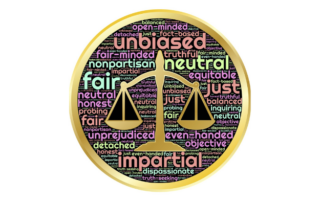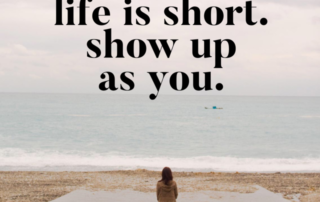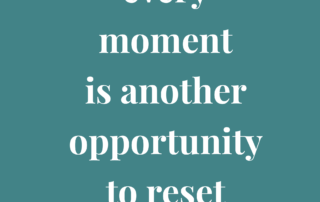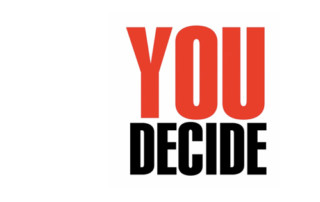Mastering Discernment: Navigating life’s choices with clarity and wisdom
It’s common for us to judge. As humans, we’re wired to want to make sense of situations, which involves making judgments. We judge ourselves, others, and the world at large. However, our judgments are often unconscious and can come across as blame, shame or attack. Our judgments can be swift and harsh when we’re not paying attention.
Discernment, on the other hand, allows for conscious and careful consideration of a situation. Like the scales pictured above, discernment allows us to gather data, weigh our options, and make informed choices. For example, when we’re deciding what to say, what to do, what to keep, what to let go of, or even whether to stay in a relationship or not, we need discernment.
This article explores seven (7) ways to infuse discernment into your daily practices so you can live a more intentional life.
The 7 Steps
Here’s the short or TLDR version (Too Long Didn’t Read)
- Practice Pausing
- Elicit Self-Trust
- Cultivate Self-Awareness
- Learn through Reflection
- Embody Empathy
- Find Shared Values (Values = Needs = What Matters Most)
- Listen Actively + Express Honestly
Longer version ↓ for how to apply each step ♥
Step 1. Practice Pausing
- When you’re making a choice and it’s not an absolute yes, pause. If there’s doubt, it’s a NO in this moment. You might need more information, or just time to process the info you do have before choosing. Give yourself time to sit in the space of no longer and not yet. For example, when a situation changes, it’s no longer what it used to be, and it’s also not yet what it will become. This can feel messy.
- Discernment requires space to ponder, especially when it comes to life’s bigger decisions like a job change, a move, choosing a college or leaving a marriage. Without discernment, you might make impulsive decisions that you regret. Pausing creates space for you to feel your emotions coming up around the choice. Pausing takes you off of autopilot and brings you back into your body. If you want to make choices that align with your values, pausing is an essential step to creating that clarity.
- However, when pondering becomes rumination, it may be time to act. For me, if I’m ruminating, I’m starting to do overthink and obsess, which takes more energy and mental space than I want. Rumination tells me it’s time to trust, to decide, and to let the outcome be what it will.
Step 2. Elicit Self-Trust
- Trust that whatever the outcome of your choice, you (and those impacted by your choice) can handle it. It may not be “perfect.” Perfection doesn’t exist. Maybe you’ll say something that you wish you could take back or you’ll do something that you later regret. That’s ok. Even in those choices, there will be growth. You’ll learn something that you didn’t know prior, and this allows you to evolve. You’ll gain wisdom, and the next time you’re making a similar choice, it’s likely you’ll choose slightly differently, if you’re paying attention. Which brings us to number three. Self-Awareness.
Step 3. Cultivate Self-Awareness
- Without awareness, our judgements and assessments of others cause us to project onto others. We blame, don’t do our own internal work, and we may walk around on autopilot, making assumptions about why others did what they did, without having any facts to truly back it up.
- Instead of judging ourselves and others unconsciously, make it a point to notice your judgments when they come up. This takes practice.
- Each time you hear yourself making a judgment of yourself or someone else, you could pause and say to yourself, “This is me making a judgment. I’m telling myself ________”, and fill in the blank with whatever story or narrative that you believe in the moment. Challenge these thoughts by asking if this is true, or if it’s just the story you’ve been telling yourself. It may or may not be true. What data do you have that has you making this judgment? Is it an old story that you’ve been carrying around? Discernment allows us to carefully weigh data objectively without our own personal bias.
- Unexamined judgments are unconscious biases formed when we were too young to know what was happening. Our job as consciously evolving adult humans is to do our inner work so we’re not projecting our inner wounds onto those around us.
Step 4. Learn through Reflection
- To get to the place of wisdom, where “When you know better, you do better” (thank you Maya Angelou), you must reflect on what worked and what didn’t. Reflecting allows us to pivot when needed because we’ve assessed something objectively. To develop your own reflective practice, you could journal, meditate, keep notes on your phone, or talk into a recorder if journaling isn’t your thing. Whatever will support you in gaining clarity about what worked and what didn’t is what you’re looking for.
- Therapy and coaching are also excellent tools to support inner work. Therapy is helpful to explore and manage emotions. Coaching takes it a step further and holds you accountable to the changes you say you want to make. It allows you to create an intentional destination vs. a habitual one.
- Two questions to play with: 1) When things worked out the way you hoped, reflect and ask yourself, “In this situation, what went the way I wanted, and what choices did I make that supported that outcome?” 2) For things that didn’t work out the way you wanted, ask yourself the same question above, and then add, “In this situation, what choices did I make that, next time, I’ll do differently?” Allowing space for reflection invites more aligned choices in your future.
Step 5. Embody Empathy
- Discernment goes hand in hand with empathy. Take time to consider the person or situation you’re judging. If you’re judging yourself, did you make the best choice you could with the information you had? Can you give yourself some grace? If you’re judging another, are you able to imagine what you might have done in their shoes? Or how they might be feeling about the situation? Examine how your own preconceived ideas or biases are contributing to your judgment. Embodying empathy allows for compassion and kindness. The kinder we are to ourselves, the better able we are to make self-honoring choices instead of self-sabotaging ones.
Step 6. Find Shared Values (Needs/What matters to you)
- When you’re judging, look for places where your core values intersect with another. It’s in these intersections that we’re more inclined, and more willing, to collaborate with others. Finding shared values is deeply connected to empathy. You might find it challenging to recognize someone else’s needs or values if you aren’t able to empathize with them.
- However, when we are able to uncover our similarities and connect to the motivation (their need) beneath another’s behavior, it’s easier to see the humanity of another, vs. the label that we’ve cast upon them.
- Releasing the label releases the judgment, and allows us to make clearer decisions from a conscious, discerning place.
Step 7. Listen Actively + Express Honestly
- Listening to others is nuanced. We all have our biases, so when we’re in judgment, it’s tough to truly hear another person. In fact, it’s close to impossible. If we can’t hear them, how can we make discerning choices that honor both of us? Active listening involves coming into a conversation clean, without an agenda to fix, heal, change or have the other person do anything differently.
- Alongside listening is expressing ourselves honestly. To do this, it’s helpful to know what activates us, or what sets us off. It’s even better when we’re aware where that comes from. Louise Hay used to say, “you can’t clean the house if you can’t see the dirt.” In other words, we can’t fix or change something if we refuse to look at it.
- Hearing yourself is also an art. Sometimes, the voices inside our own heads are not our own. Old tapes played from family members, authority figures, or some other internal critical voice might override our own, drowning out our intuition.
- Learning to listen to your own voice is critical to making discerning choices that align with your I’ve made many choices where I ignored my intuition, and each time, it’s been a massive growth opportunity, or AFGO (another fucking growth opportunity!). Just a few years ago I had back surgery. Walking into the hospital, I had an intuitive hit that told me not to have the surgery. I ignored my intuition to pause; I wasn’t an absolute yes. But I didn’t let myself pause and I had the surgery. And it’s been AFGO, which is a story for another time.
A final note about judgment. Judgment isn’t right or wrong, good, or bad. It just is. We’re human. We judge. It’s when we go through life judging without our own internal examination to see where our judgments are coming from that creates external havoc. We can’t change what we don’t want to see. (think of Louise Hay with the dirt). Being aware of our judgment is the best way to shift our judgment.
In conclusion, when you practice discernment in these areas, you deepen the connections with yourself and those around you. When you’re discerning in your choices, you’re living an intentional life. Living an intentional life enables you to set clear boundaries, do what you love, and have fewer regrets.
Here’s to operating from a place of internal alignment, where we’ll cultivate gratifying relationships that nourish us, which in turn allow us to serve others in a more impactful way.
A discerning life creates a more intentional life.
May 2024 be intentional and filled with all that matter to you!
Love,
Chris
Additional Resources:
Watch on YouTube: Taylor Swift’s 2022 Commencement address to NYU graduates, where she discusses life choices and practicing discernment. 28m4s watch. It’s well worth watching!
Listen on YouTube: Alanis Morissette’s song, Tapes (about critical inner voices / self-judgment)
Read lyrics to Alanis’s Tapes.
Enjoy this article? Please share it with your friends and family. 🙂
If you’d like to be notified of new articles or events, please click here to join my newsletter community.






